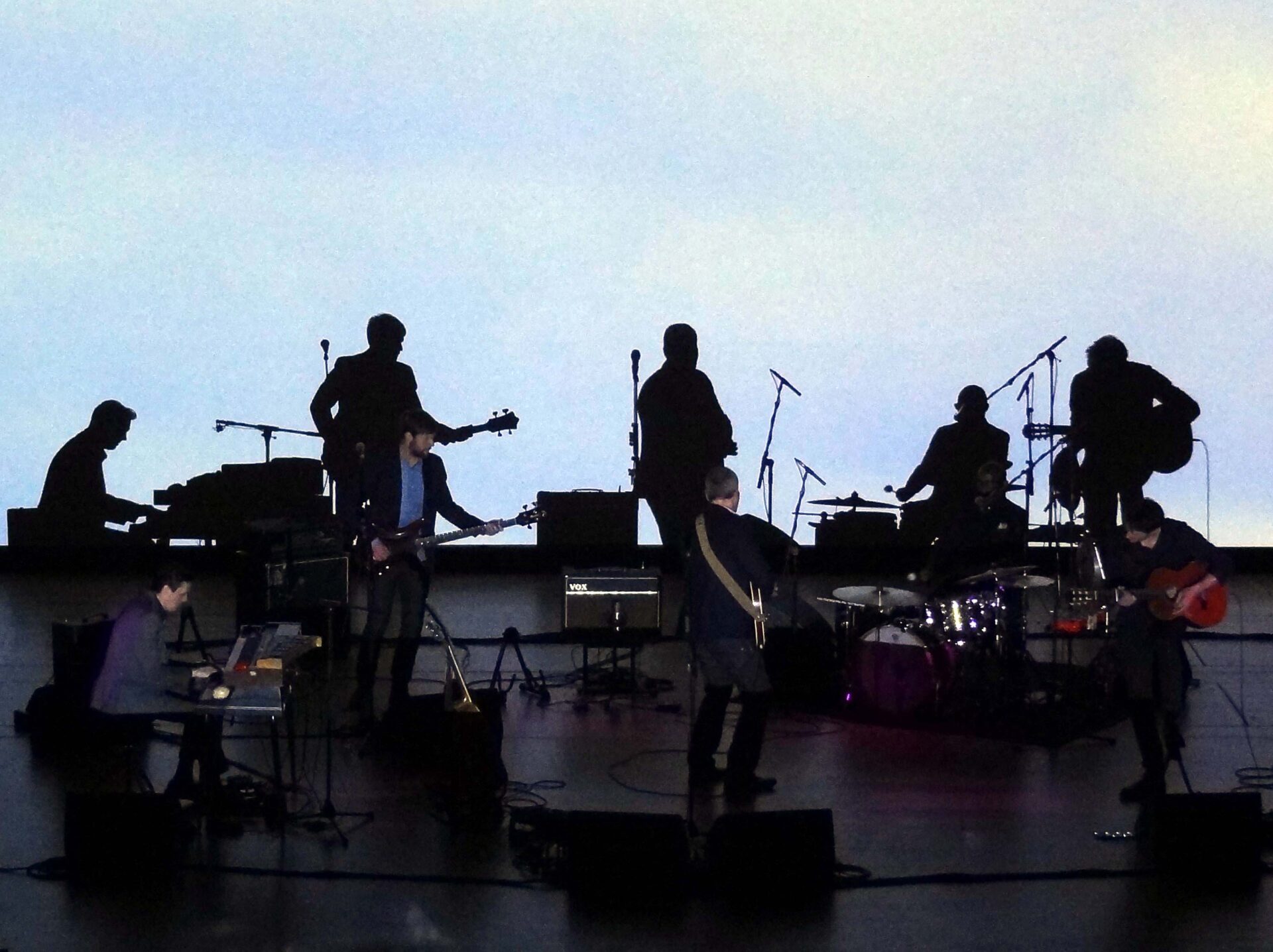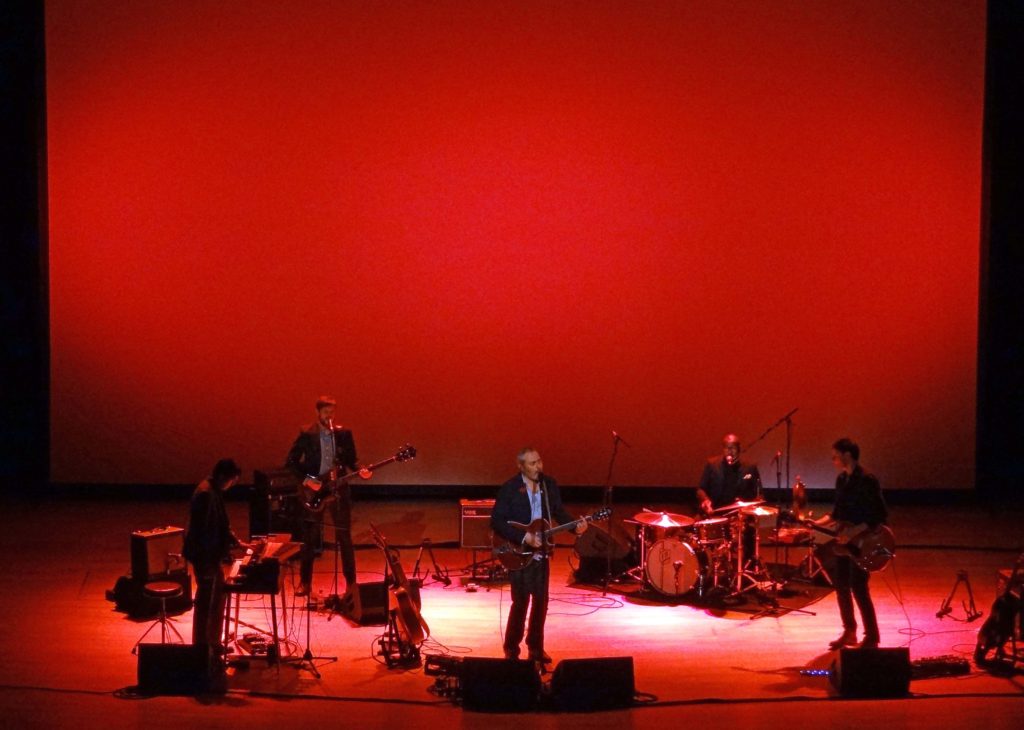There is something undeniably Gallic about Tindersticks. They may well have formed in Nottingham almost a quarter of a century ago now, but the French spirit always seems to have been present in both them and their music. The band has had a long association with the French film director and writer, Claire Denis. They provided beautifully understated scores for six of her films including Nénette Et Boni (their first ever soundtrack venture), Trouble Every Day and White Material. A seventh is to be written for the director later this year for her upcoming film High Life.
Continuing with the French connection, Tindersticks’ frontman Stuart A. Staples – he and fellow founding members Dave Boulter on keyboards and guitarist Neil Fraser still remain as the nucleus of the current band – and his artist wife Suzanne Osborne moved from London to La Souterraine, France, in 2003. Their home is also the location of Tindersticks’ own studio, Le Chien Chanceux, and it is here that the band recorded their 10th studio album, The Waiting Room. For this record, and in marked contrast to what is normal convention, the band gave a number of acclaimed arthouse film makers – Christoph Girardet, Pierre Vinour, Rosie Pedlow and Joe King, Gregorio Graziosi, Richard Dumas, Gabriel Sanna and Claire Denis herself – music to which they could then provide accompanying visuals.
It is this project – The Waiting Room performed in its entirety against a backdrop of these specially commissioned films – that forms the second half of tonight’s show (the third date in a short UK tour). Prior to that, though, Tindersticks take us on a really quite mesmerising eight-song journey through some of their back pages. We get the tender, haunting charm of ‘Keep You Beautiful’; the languid shuffle of ‘Medicine’ over which Staples traces his familiar lugubrious drawl; and an interpretation of Peggy Lee’s ‘Johnny Guitar’ that brings to life all of the romanticism, tragedy and melodrama of Nicholas Ray’s 1954 Western movie of that name. It is a remarkably touching moment that transcends simple description.
Tindersticks then go as far back as their second album for a faithful reading of ‘She’s Gone’ before shifting through the gears with ‘Boobar Come Back To Me’. As Boobar gathers momentum and Staples’ yearning increases, the song’s melody just takes off before abruptly descending back down to earth as all hope is extinguished. ‘Sometimes It Hurts’ and the concluding ‘My Oblivion’ mine similar seams of abject despair. Yet for all the material’s inherent sense of sadness, there also lies a belief that something better may lie ahead just beyond the most immediate pain.
A 20-minute interval allows time for some emotional recovery from what has just gone before but does little in terms of preparation for what then ensues. The Waiting Room cine-concert is nothing short of remarkable. Played in the exact sequence in which they appear on the record, the songs are brought to even greater life when performed in front of their accompanying short films. This particular marriage of sound and vision renders the line between the two indistinct. It seems so much less a series of individual collaborations than just one complete entity.
Shorn of Julian Siegel’s admittedly wonderful studio brass arrangements, the trepidation, and paranoia of ‘Help Yourself’ multiplies. ‘Hey Lucinda’ similarly loses some of its studio skin – that of the late Lhasa De Sela’s integral voice – something that only seems to accentuate Staples’ vulnerability. And on ‘This Fear of Emptiness’ we can virtually feel Staples’ suffering as the accompanying moving images threaten to completely submerge us.
On the album, ‘We Are Dreamers!’ had featured Savages‘ frontwoman Jehnny Beth alongside Staples. Here he makes the journey alone, the industrialised suppression of the song’s melody his only companion. The concluding ‘Like Lovers Only Can’ may be a blessed counterpoint but it ultimately poses far more questions than answers in an experience that intriguingly offers the audience no simple resolution.
A three-song encore of ‘Show Me Everything’, ‘This Fire of Autumn’ and ‘A Night So Still’ – again drawn from the Tindersticks’ extensive and illustrious back catalogue – takes us back to a point where we began and with it brings a certain symmetry to the whole evening. It has been a thrilling and courageous odyssey on which Tindersticks have taken us, the remarkable centrepiece being the cine-concert; a wonderful collaborative work of great artistic vision and immense creative freedom.
Photo credit: Simon Godley





